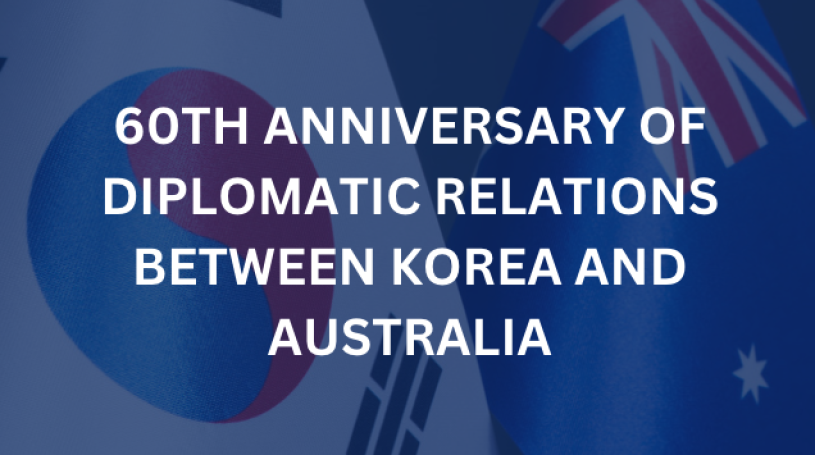60th anniversary of diplomatic relations between Korea and Australia… “The business community of both countries need to diversify the areas of cooperation”
As Korea and Australia commemorates the 60th anniversary of the establishment of diplomatic ties between the two countries, business leaders gathered and discussed the need to diversify mutual cooperation.
Federation of Korean Industries (FKI) and Australia-Korea Business Council AKBC) held the 42nd AKBC-KABC Joint Meeting at the JW Marriot Hotel in Seoul while Australian participants joining virtually.
The meeting was joined by Mr Jeong-Woo Choi, Chairman of Korea-Australia Business Council (KABC) and CEO, POSCO, the Hon Simon Crean, Chairman, AKBC, the Hon Dan Teahan MP, Minister for Trade, Tourism, and Investment, Mr Ki-Ho Han, Chairman of Korea-Australia Parliamentary Friendship Group and Mr Tae-shin Kwon, Vice Chairman/CEO, FKI.
Chairman Choi mentioned during his opening remarks, “Economic cooperation between Korea and Australia over the past 60 years has been successful more than ever. Investment between the two countries has been increased by 5,000 times since 1965.
Minister Tehan said during his keynote speech “Australia and Korea have agreed to develop a comprehensive partnership and we look forward to revitalising the economies of both countries and create new jobs and opportunities for businesses”. He also said, “I am especially pleased that Korea is considering active participation in the CPTPP”.
Ambassador Kang, Korean Ambassador to Australia said “Korea and Australia need to diversify cooperation areas between two countries such as low emissions technology, vaccines, critical minerals and defence, there are so many potentials.
David Woodall, Managing Director, Australian Strategic Materials (ASM) commented during his presentation that the permanent magnets used as core materials for new and renewable energy and next-generation industries such as electric vehicles, wind turbines, aerospace and telecommunications are currently almost exclusively produced in China. It is expected to be dependent on China in the future.
ASM is working on a zero-emission Dubbo Rare Earths Mine Project with our Korean partners, and it is the first commercialised low emissions metallisation technology in Korea. As a result, we have succeeded in reducing emissions by up to 70% compared to the current industry standard.
Mr Kaehee Oh, Head of Group, POSCO emphasised during his presentation that while the global electric vehicle market is expected to grow at an average annual rate of over 30%, the growth of the secondary battery material market is also accelerating due to the growing demand for batteries.
The need for strategic collaboration was also reiterated by Yong ho Choi, Energy & Resources Practice Lead Partner, Deloitte Consulting Korea said during his presentation that due to the huge scope of the value chain of the hydrogen economy, strategic collaboration between hydrogen companies is essential.
Vaccine partnerships between Australia and Korea were delivered by Ms Julie Quinn, Senior Trade Commissioner, Austrade. She said cooperation between the two countries is important to catch up on leading vaccine technologies in Europe and America. She also mentioned that Australia and Korea work together; Australia is strong in biomedical research ecosystem and has the world’s top 10 vaccine companies while Korea can offer the world’s largest CDMO and strong manufacturing base in biotechnology.
Read in Korean: https://newsis.com/view/?id=NISX20211028_0001631350&cID=13001&pID=13000

